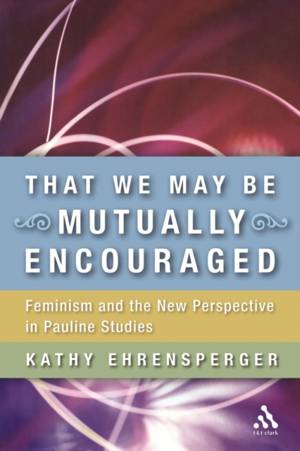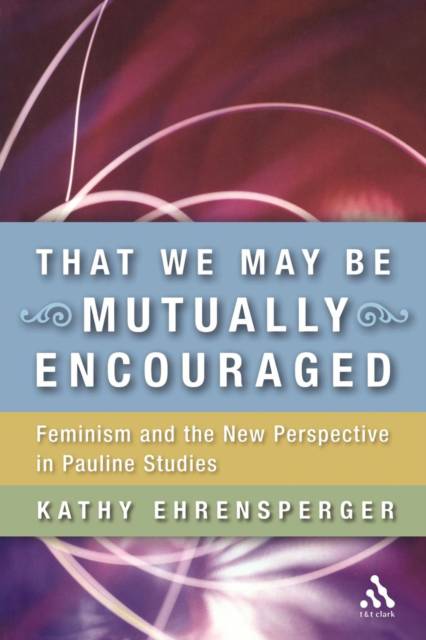
- Afhalen na 1 uur in een winkel met voorraad
- Gratis thuislevering in België vanaf € 30
- Ruim aanbod met 7 miljoen producten
- Afhalen na 1 uur in een winkel met voorraad
- Gratis thuislevering in België vanaf € 30
- Ruim aanbod met 7 miljoen producten
That We May Be Mutually Encouraged
Feminism and the New Perspective in Pauline Studies
Kathy EhrenspergerOmschrijving
There has been a revolutionary shift of thinking in Pauline Studies, fundamentally changing the image of Paul. Postmodern literary criticism of Paul's epistles and sociorhetorical criticism of his letters has created a New Perspective approach to Pauline studies. At the same time, feminist criticism of the Pauline corpus has been growing. Unfortunately there has been hardly any interaction and exchange of research results between these different strands of scholarship. The result of this is that in Pauline studies scholars are hardly aware of feminist perspectives. Similarly, feminist interpretations of Paul, not fully conversant with the most recent strands of Pauline research, are often based on traditional images of Paul.
Ehrensperger's analysis of feminist commentaries on Paul thus contains a rather negative depiction of theological thinking. However, both strands of research, feminist and those of the New Perspective, provide fresh and illuminating insights that emphasize similar aspects from different perspectives. Ehrensperger advocates a closer interaction between these two schools of Pauline studies. She analyzes Romans 14-15, exploring the results of recent research in both Pauline schools. Pauline studies from the New Perspective emphasize the Jewish context and texture of Paul's thinking. She sets these in dialogue with feminist theology, which focuses on issues of identity, diversity, and relationality. Her study results in a perspective on Paul which views him as a significant dialogue partner in the search for a theology beyond anti-Semitism and misogyny, beyond force and domination. Kathy Ehrensperger studied theology at the Universities of Basel and Berne, and was a pastor for sixteen years in Switzerland. She is currently a Lecturer in New Testament Studies at the University of Wales, Lampeter.Specificaties
Betrokkenen
- Auteur(s):
- Uitgeverij:
Inhoud
- Aantal bladzijden:
- 244
- Taal:
- Engels
Eigenschappen
- Productcode (EAN):
- 9780567026408
- Verschijningsdatum:
- 15/04/2004
- Uitvoering:
- Paperback
- Formaat:
- Trade paperback (VS)
- Afmetingen:
- 156 mm x 229 mm
- Gewicht:
- 408 g

Alleen bij Standaard Boekhandel
Beoordelingen
We publiceren alleen reviews die voldoen aan de voorwaarden voor reviews. Bekijk onze voorwaarden voor reviews.







